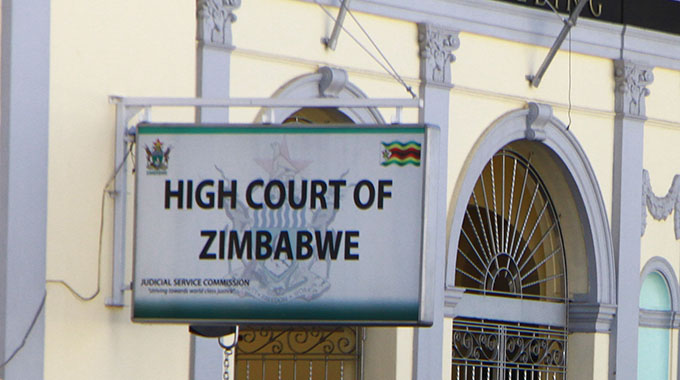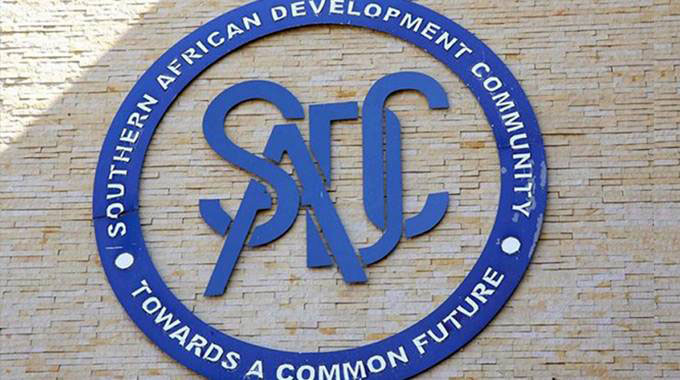Covid-19 restrictions legal: High Court

Fidelis Munyoro Chief Court Reporter
GOVERNMENT regulations restricting business hours to between 8am and 3pm to curb the spread of the Covid-19 pandemic are not in violation of the country’s laws, the High Court has ruled.
The ruling on Friday came after the Zimbabwe Lawyers for Human Rights (ZLHR) challenged the legality of Statutory Instrument 174 of 2020 which compels businesses to close by 3pm.
The recent spike in confirmed coronavirus infections, prompted Government to impose a dusk-to-dawn curfew as part of a raft of measures to stop the spread of the lethal pandemic which has so far killed 132 people from 5 261 recorded cases.
Security forces are enforcing the curfew between 6pm and 6am while all non-working people are required to stay at home, except when they want to buy groceries or seek medical attention.
Only those providing essential services are allowed to work outside the stipulated hours.
Following the arrest of jpolitical activist Hopewell Chin’ono and opposition politician Jacob Ngarivhume, lawyers representing the duo, Ms Beatrice Mtetwa and Moses Nkomo — both instructed by the ZLHR — could not persuade a Harare magistrate to continue hearing bail applications beyond 3pm.
Court officials said they were adhering to Government regulations on business hours.
This prompted the ZLHR to rush to the High Court, challenging the regulations, arguing this was unconstitutionally disadvantaging arrested persons.
In its lawsuit, ZLHR listed the Judicial Service Commission (JSC) and National Prosecuting Authority (NPA), the Minister of Justice, Legal and Parliamentary Affairs and the Minister of Health and Child Care as respondents.
They wanted Statutory Instrument 174 of 2020 not to limit the sitting of the magistrates’ court when dealing with initial bail applications and challenges to placement on remand.
But Justice Clement Phiri dismissed the application for interim relief sought, finding merit on the preliminary points raised by JSC lawyer Mr Addington Chinake of Kantor and Immerman.
Mr Chinake had argued that allegations against Chin’ono, Ngarivhume and Harare mayor Herbert Gomba mentioned in the ZLHR’s founding affidavit, were not properly before the High Court.
He said in the absence of any cogent and acceptable proof of the allegations made in the form of supporting affidavits, his client believed that the applicant’s case was speculative.
The allegations, he argued, were based on hearsay and conjecture and the JSC was of the view that the court could not grant the relief sought on the grounds of such speculative apprehension.
Mr Chinake also argued that the ZLHR’s seeking of a declaration of constitutional invalidity of the law on return date, was not proper at the interim stage.
After considering the preliminary points raised by Mr Chinake at the beginning of the legal proceedings, the judge found merit in the issues raised against the human rights lawyers.
“It is this court’s considered view that the applicant in this matter, has failed to take this court into its confidence and justify why this matter should be treated as urgent,” he said.
In that regard, ZLHR failed to prove a strong case that the regulations are unlawful hence the court was not in a firm position to grant the relief sought.
“Accordingly, the points in limine raised for and on behalf of the first respondent are upheld and the application for interim relief is hereby dismissed with costs,” said Justice Phiri.
In their urgent application, the ZLHR wanted an order compelling the respondents, in the interim, to put into place measures and facilities which ensure that the courts, when dealing with challenges to placement on remand and bail applications shall not be imperilled by the timelines set out under the Public Health (Covid-19 Prevention, Containment and Treatment) (National Lockdown Amendment) Order 2020.
ZLHR director Ms Roselyn Hanzi had argued in her affidavit that in practice, once a bail application or challenge to placement on remand had commenced, it was supposed to be heard to finality before the court adjourned for the day.
She said bail matters had previously been granted or refused well after hours and times well into the evening.







Comments